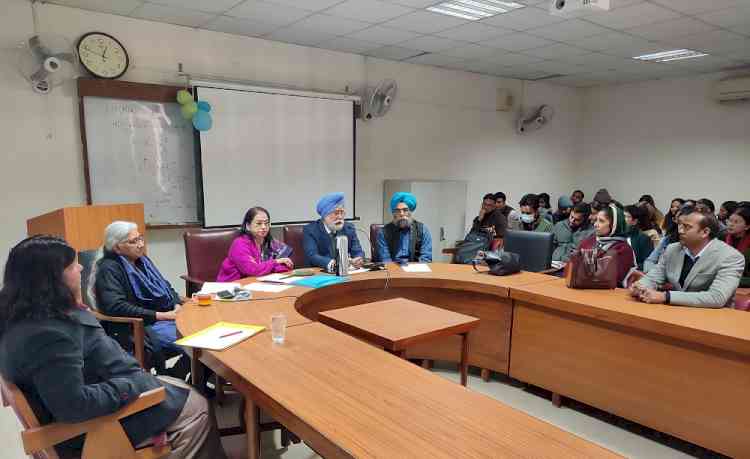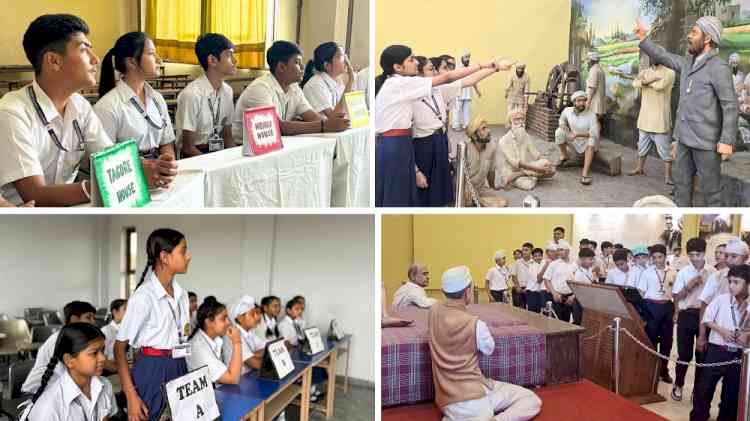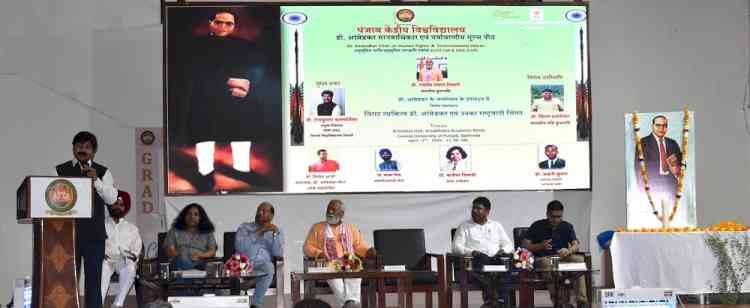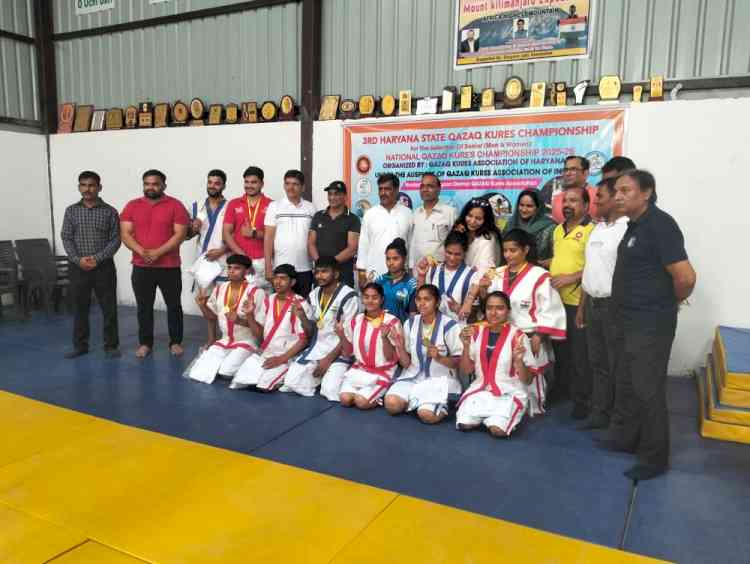Panel Discussion on theme “Status of the Discipline of Public Administration”
The Department of Public Administration, Panjab University, Chandigarh in collaboration with IIPA Punjab and Chandigarh Regional branch organised a Panel Discussion on the theme “Status of the Discipline of Public Administration” today.

Chandigarh, January 19, 2023: The Department of Public Administration, Panjab University, Chandigarh in collaboration with IIPA Punjab and Chandigarh Regional branch organised a Panel Discussion on the theme “Status of the Discipline of Public Administration” today. Dr. Bharati Garg, Chairperson, Department of Public Administration, introduced the theme of the panel discussion and Dr. Bhawna Gupta formally welcomed the eminent panellists and the participants to the panel discussion. Professor B.S. Ghuman, Former Vice- Chancellor, Punjabi University, Patiala and Honorary Secretary, IIPA, Punjab and Chandigarh Regional Branch chaired the panel discussion
Prof. B.S. Ghuman, while introducing the theme highlighted the changing contours of the discipline posed a question whether the discipline is adequately equipped to deliver in the rapidly changing scenario. He suggested that the changes both in research and teaching are imperative to meet the rising challenges in the society. He emphasized on the need of better understanding of newly emerging technologies like Artificial Intelligence and internet of things that are disrupting the socio-economic milieu of the society to make the discipline relevant in the emerging times. The panel discussion focussed on three broad areas: developing band updating the curriculum to meet the contemporary needs of policy; status of research in Public Administration; and, Applied aspects of Public Administration.
Prof. Ramanjit Kaur Johal, Department of Public Administration, Panjab University, while delving on the first aspect i.e. “Curriculum Development” highlighted the status of the discipline both in public and private institutions. She stressed on the need for changing and synthesizing the curriculum of the discipline with the changing times and making it relevant by introducing courses relating to Public Administration and Policy. She also noted that industry driven courses being offered by private universities have increased their role in the higher education sector and in this backdrop public institutions need to reinvent their curriculum and syllabi.
Prof. Inderjeet Singh Sodhi, RGNIYD, Regional Branch Chandigarh shared his views on the second aspect of the discussion “Status of Research in Public Administration” shared that immense professional opportunities are available to the scholars and students of the discipline both at the international agencies, research organisation and civil society organizations. He stressed on the need to include public administration as a mandatory subject from school level to university level to make the discipline more dynamic and relevant to the contemporary times.
Prof. (Retd.) Neelima Deshmukh, Rashtrasant Tukadoji Maharaj Nagpur University, Nagpur, discussed at length the “Applied Aspects of Public Administration”. She highlighted the active role of research in the discipline and how it can augment the efforts in delivering inputs to the policy sector. She also stressed on the role of imparting training to the representatives at the local government level. She again unequivocally stressed on the need of micro planning at the local government level and need to bring amendments in the 73rd and 74th Constitutional Amendment Acts.
The panel discussion was followed by presidential remarks by Prof. B.S. Ghuman advocated that teaching and research are two sides of the same coin and if the discipline wants to increase its visibility, quality research is to be undertaken. He presented the SWOT analysis of the subject underlining the need of knowing the unknown. The strengths of the discipline mentioned were dynamism, bridging the geographic distance, applied research and involvement of 3rd sector’; weakenesses referred to were w.r.t. the research being descriptive rather than theoretical, lack of longitudinal studies and missing vertical and horizontal linkages. While focussing on the opportunities in ttyhe discipline, he stressed that the contours of the discipline are fast changing and the academicians need to meet the benchmarks laid and conduct evidence based research. The major threats faced by the discipline were overlapping areas among different discipline and space encroached by think tanks and NGOs supplying policy reports, thus, sidelining the academics.
He suggested that integrative research which acts as the mediator between theory and practice of the discipline should be promoted so that the practical and contemporary problems of the society can be addressed.
The discussion was followed by engaging discussion in which Mr. Balbinder Singh, Deputy CAG, Dr. Sandeep, Dr. Namit, scholars and students from the Department, RGNIYD, and sister departments actively participated. They gave suggestions to improvise the curriculum and research.
Dr. Bhawna Gupta, Assistant Professor, Department of Public Administration proposed the formal vote of thanks.


 City Air News
City Air News 








